AI technologies are reshaping the landscape of e-commerce, making it more personalized, efficient, and effective. From intelligent recommendation systems to automated customer service solutions, businesses are leveraging artificial intelligence to enhance customer experiences and streamline operations. In this article, we will explore the various ways AI is being applied in e-commerce, the latest updates and trends, and some innovative solutions that are making a significant impact.
The adoption of AI in e-commerce is primarily driven by the need to process vast amounts of consumer data quickly and effectively. Traditional marketing strategies often fall short in understanding customer preferences and behavior, while AI provides insights that can lead to more personalized shopping experiences. A study by McKinsey & Company indicates that AI can increase retail profits by up to 60% by enabling better inventory management, product recommendations, and targeted marketing strategies.
**AI in Big Data Analytics: Understanding Consumer Behavior**
Big data analytics has become an integral part of e-commerce, particularly with the rise of AI technologies. This combination allows businesses to sift through massive datasets to uncover hidden patterns and trends. Through machine learning algorithms, AI systems can analyze customer behavior across various touchpoints, providing invaluable insights into purchasing habits, website navigation patterns, and even sentiment analysis from social media.
For example, companies like Amazon and Alibaba utilize sophisticated algorithms that analyze user behavior and preferences to recommend products. These personalized recommendations lead to increased sales and improved customer retention. According to a report by Statista, targeted recommendations can account for up to 30% of a retailer’s revenue.
But the journey doesn’t stop there. AI technologies also allow for predictive analytics, which can forecast future buying trends based on historical data. This capability enables e-commerce retailers to adjust their inventory and marketing strategies proactively, thereby meeting customer demands more effectively.
**Integrating AI Digital Assistant Tools into E-commerce**
One of the most significant developments in AI is the rise of digital assistant tools that enhance customer service and improve operational efficiencies. AI digital assistants, like chatbots, have become essential in the e-commerce sector, providing round-the-clock support to customers. These tools can handle a variety of tasks, from answering frequently asked questions to guiding customers through the purchase process.
For instance, the integration of AI-powered chatbots can significantly reduce response times for customer inquiries. A survey by Juniper Research suggested that chatbots could handle up to 70% of customer interactions by 2023, saving companies significant amounts in customer service costs. Moreover, as these tools become more sophisticated with natural language processing capabilities, they can engage in more meaningful and context-aware conversations with customers.
AI digital assistants also aid in gathering customer feedback, which can be used to improve product offerings and customer experiences. By analyzing this data, e-commerce businesses can make informed decisions about their services or offerings, ultimately leading to enhanced customer satisfaction.
**Industry Applications and Innovations: Harnessing AI for Business Growth**
As industries continue to evolve, AI’s role in e-commerce becomes even more pronounced. Organizations are now investing in AI technologies to automate various facets of their operations, leading to greater efficiency and growth.
One application is in supply chain management. AI tools can optimize logistics by predicting demands, managing inventory levels, and even suggesting optimal shipping routes. This computational intelligence allows e-commerce businesses to reduce operational costs and improve delivery times, leading to an overall enhancement in customer satisfaction.
Moreover, AI is being employed in fraud detection and prevention. E-commerce platforms are increasingly susceptible to fraudulent activities. By utilizing machine learning algorithms to analyze transaction patterns, businesses can identify anomalies that suggest fraudulent activities in real time. A study by PwC found that over 50% of organizations are now using AI tools to combat fraud, showcasing their growing importance in the e-commerce sector.
**Trends and Future Directions: The Path Forward for AI in E-commerce**
As we look to the future, several trends are shaping the role of AI in e-commerce. Firstly, personalization will continue to be a focal point. With customers expecting tailored experiences, e-commerce businesses that leverage AI to provide personalized product recommendations and targeted marketing campaigns will likely dominate the marketplace.
Secondly, the integration of augmented reality (AR) with AI is emerging as a powerful trend. Retailers are adopting AR technologies to provide virtual try-ons and enhance the online shopping experience. By integrating AI algorithms, these solutions can analyze a user’s preferences and recommend products that suit their taste, further enhancing engagement.
Additionally, sustainability will drive the use of AI in e-commerce. As consumers become more environmentally conscious, businesses can leverage AI solutions to optimize supply chain processes, reduce waste, and provide transparent sourcing information. A report from Deloitte indicates that companies with sustainable practices can see up to 15% growth in sales.
**Real-World Use Cases: Driving Success through AI Technologies**
Several successful case studies exemplify the transformative impact of AI in e-commerce. One prominent example is Starbucks, which uses AI algorithms to personalize marketing messages through their mobile app, offering tailored promotions based on users’ preferences and purchasing history. This application has resulted in increased customer engagement and a significant boost in app usage.
Another case is Zalando, an online fashion retailer that uses AI in multiple ways—from visual search capabilities that allow customers to upload images to find similar items, to utilizing machine learning to forecast trends. This multifaceted application of AI has enabled Zalando to enhance customer experience while boosting sales.
**Conclusion: The Future is Now: Embracing AI in E-commerce**
The integration of AI technologies in e-commerce is reshaping how businesses operate and engage with customers. From big data analytics that enhance customer insights to AI digital assistant tools that streamline interactions, the potential applications are vast and expanding rapidly. As trends like personalization, augmented reality, and sustainability drive innovation, it is clear that the future of e-commerce is increasingly intertwined with AI.
Businesses that embrace AI not only stand to gain a competitive edge but also drive significant growth and customer loyalty. As we continue to embrace these transformative technologies, the e-commerce industry promises a future that is more efficient, customer-centric, and innovative than ever before.
**Sources:**
– McKinsey & Company. (2021). *The impact of AI on retail profits.*
– Statista. (2021). *E-commerce sales from recommendations.*
– Juniper Research. (2020). *The future of chatbot interactions.*
– PwC. (2020). *Combating fraud with AI.*
– Deloitte. (2020). *The growth potential of sustainability in e-commerce.*
































